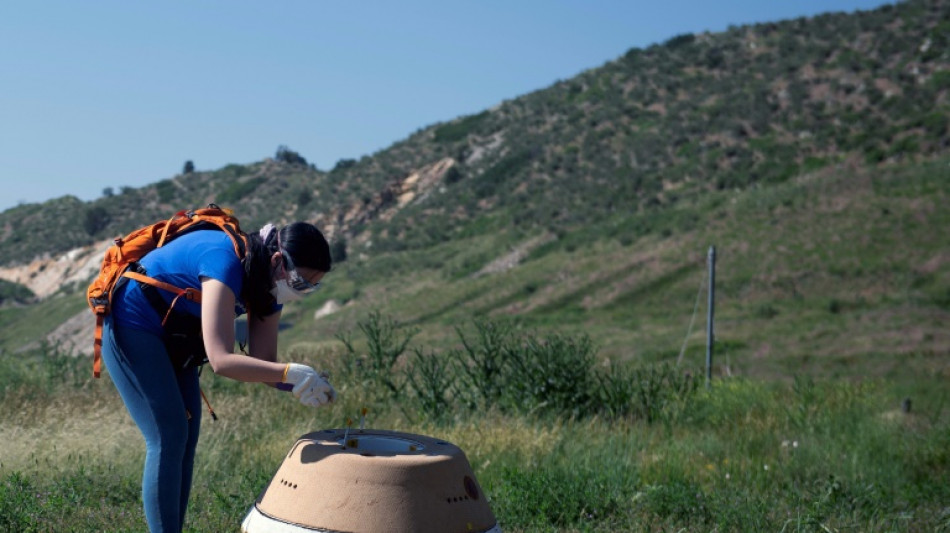
-
 Imperious Sinner barrels into Australian Open round three
Imperious Sinner barrels into Australian Open round three
-
Storms, heavy rain kill 9 children across Afghanistan
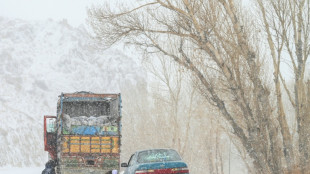
-
 Games giant Ubisoft suffers share price collapse
Games giant Ubisoft suffers share price collapse
-
Exhausted Wawrinka battles on in Melbourne farewell after five-set epic

-
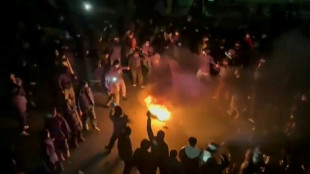 'Too dangerous to go to hospital': a glimpse into Iran's protest crackdown
'Too dangerous to go to hospital': a glimpse into Iran's protest crackdown
-
Bruised European allies wary after Trump's Greenland climbdown

-
 Austrian ex-agent goes on trial in Russia spying case
Austrian ex-agent goes on trial in Russia spying case
-
Japan suspends restart of world's biggest nuclear plant
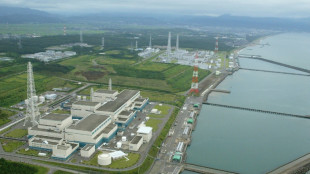
-
 Djokovic, Swiatek roll into Melbourne third round, Keys defence alive
Djokovic, Swiatek roll into Melbourne third round, Keys defence alive
-
New Zealand landslips kill at least two, others missing
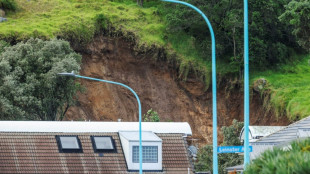
-
 Djokovic says heaving Australian Open crowds 'good problem'
Djokovic says heaving Australian Open crowds 'good problem'
-
Swiatek in cruise control to make Australian Open third round

-
 Austrian ex-agent to go on trial in Russia spying case
Austrian ex-agent to go on trial in Russia spying case
-
Bangladesh launches campaigns for first post-Hasina elections

-
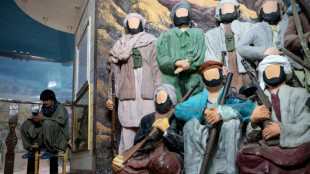 Afghan resistance museum gets revamp under Taliban rule
Afghan resistance museum gets revamp under Taliban rule
-
Multiple people missing in New Zealand landslips
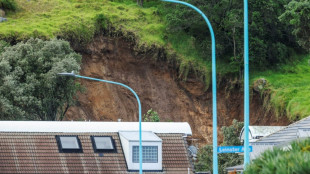
-
 Sundance Film Festival hits Utah, one last time
Sundance Film Festival hits Utah, one last time
-
Philippines convicts journalist on terror charge called 'absurd'

-
 Anisimova grinds down Siniakova in 'crazy' Australian Open clash
Anisimova grinds down Siniakova in 'crazy' Australian Open clash
-
Djokovic rolls into Melbourne third round, Keys defence alive

-
 Vine, Narvaez take control after dominant Tour Down Under stage win
Vine, Narvaez take control after dominant Tour Down Under stage win
-
Chile police arrest suspect over deadly wildfires
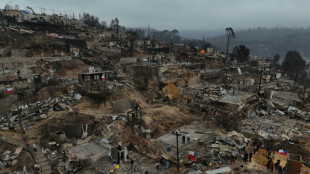
-
 Djokovic eases into Melbourne third round - with help from a tree
Djokovic eases into Melbourne third round - with help from a tree
-
Keys draws on champion mindset to make Australian Open third round

-
 Knicks halt losing streak with record 120-66 thrashing of Nets
Knicks halt losing streak with record 120-66 thrashing of Nets
-
Philippine President Marcos hit with impeachment complaint

-
 Trump to unveil 'Board of Peace' at Davos after Greenland backtrack
Trump to unveil 'Board of Peace' at Davos after Greenland backtrack
-
Bitter-sweet as Pegula crushes doubles partner at Australian Open

-
 Hong Kong starts security trial of Tiananmen vigil organisers
Hong Kong starts security trial of Tiananmen vigil organisers
-
Keys into Melbourne third round with Sinner, Djokovic primed

-
 Bangladesh launches campaigns for first post-Hasina polls
Bangladesh launches campaigns for first post-Hasina polls
-
Stocks track Wall St rally as Trump cools tariff threats in Davos

-
 South Korea's economy grew just 1% in 2025, lowest in five years
South Korea's economy grew just 1% in 2025, lowest in five years
-
Snowboard champ Hirano suffers fractures ahead of Olympics

-
 'They poisoned us': grappling with deadly impact of nuclear testing
'They poisoned us': grappling with deadly impact of nuclear testing
-
Keys blows hot and cold before making Australian Open third round

-
 Philippine journalist found guilty of terror financing
Philippine journalist found guilty of terror financing
-
Greenlanders doubtful over Trump resolution
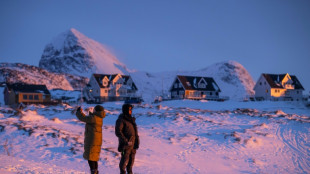
-
 Real Madrid top football rich list as Liverpool surge
Real Madrid top football rich list as Liverpool surge
-
'One Battle After Another,' 'Sinners' tipped to top Oscar noms

-
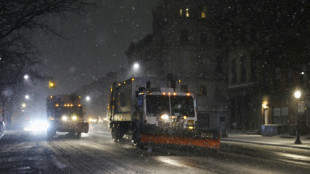 Higher heating costs add to US affordability crunch
Higher heating costs add to US affordability crunch
-
Eight stadiums to host 2027 Rugby World Cup matches in Australia

-
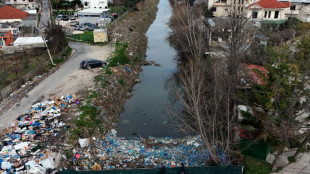 Plastics everywhere, and the myth that made it possible
Plastics everywhere, and the myth that made it possible
-
Interim Venezuela leader to visit US

-
 Australia holds day of mourning for Bondi Beach shooting victims
Australia holds day of mourning for Bondi Beach shooting victims
-
Liverpool cruise as Bayern reach Champions League last 16

-
 Fermin Lopez brace leads Barca to win at Slavia Prague
Fermin Lopez brace leads Barca to win at Slavia Prague
-
Newcastle pounce on PSV errors to boost Champions League last-16 bid

-
 Fermin Lopez brace hands Barca win at Slavia Prague
Fermin Lopez brace hands Barca win at Slavia Prague
-
Kane double fires Bayern into Champions League last 16


NASA capsule bearing asteroid sample in imminent return to Earth
A seven-year space voyage comes to its climactic end Sunday when a NASA capsule lands in the desert in the US state of Utah, carrying to Earth the largest asteroid samples ever collected.
Scientists have high hopes for the sample, saying it will provide a better understanding of the formation of our solar system and how Earth became habitable.
The Osiris-Rex probe's final, fiery descent through Earth's atmosphere will be perilous, but the US space agency is hoping for a soft landing, around 9:00am local (15H00 GMT), in a military test range in northwestern Utah.
Four years after its 2016 launch, the probe landed on the asteroid Bennu and collected roughly nine ounces (250 grams) of dust from its rocky surface.
Even that small amount, NASA says, should "help us better understand the types of asteroids that could threaten Earth" and cast light "on the earliest history of our solar system," NASA Administrator Bill Nelson said.
"This sample return is really historic," NASA scientist Amy Simon told AFP. "This is going to be the biggest sample we've brought back since the Apollo moon rocks" were returned to Earth.
But the capsule's return will require "a dangerous maneuver," she acknowledged.
Osiris-Rex released the capsule early Sunday -- from an altitude of more than 67,000 miles (108,000 kilometers) -- some four hours before it lands.
The fiery passage through the atmosphere will come only in the last 13 minutes, as the capsule hurtles downward at a speed of more than 27,000 miles per hour, with temperatures of up to 5,000 Fahrenheit (2,760 Celsius).
Its rapid descent, monitored by army sensors, will be slowed by two successive parachutes. Should they fail to deploy correctly, a "hard landing" would follow.
If it had appeared that the target zone (37 miles by 9 miles) might be missed, NASA controllers could decide at the last moment not to release the capsule.
But all systems are go, as NASA's Planetary Science Division posted on X, formerly Twitter, that Osiris-Rex released the capsule with the asteroid sample at 1042 GMT.
"The capsule will plummet through space for four hours, enter the atmosphere over California and land about 13 minutes later in Utah," it said.
The probe, having successfully released its cargo, fired its engines and shifted course away from Earth, NASA said, "on its way" for a date with another asteroid, known as Apophis.
Scientists predict it will come within 20,000 miles of Earth in 2029.
- Japanese samples -
Once the tire-sized capsule touches down in Utah, a team in protective masks and gloves will place it in a net to be airlifted by helicopter to a temporary "clean room" nearby.
NASA wants this done quickly and carefully to avoid any contamination of the sample with desert sands, skewing test results.
On Monday the sample is to be flown by plane to NASA's Johnson Space Center in Houston. There, the box will be opened in another "clean room."
NASA plans to announce its first results at a news conference October 11.
Most of the sample will be conserved for study by future generations. Roughly one-fourth will be immediately used in experiments, and a small amount will be sent to mission partners Japan and Canada.
Japan had earlier given NASA a few grains from asteroid Ryugu, after bringing 0.2 ounces of dust to Earth in 2020 during the Hayabusa-2 mission. Ten years before, it had brought back a microscopic quantity from another asteroid.
But the sample from Bennu is much larger, allowing for significantly more testing, Simon said.
- Earth's origin story -
Asteroids are composed of the original materials of the solar system, dating back some 4.5 billion years, and have remained relatively intact.
They "can give us clues about how the solar system formed and evolved," said Osiris-Rex program executive Melissa Morris.
"It's our own origin story."
By striking Earth's surface, "we do believe asteroids and comets delivered organic material, potentially water, that helped life flourish here on Earth," Simon said.
Scientists believe Bennu, about 500 meters (1,640 feet) in diameter, is rich in carbon -- a building block of life on Earth -- and contains water molecules locked in minerals.
Bennu surprised scientists in 2020 when the probe, during its brief contact with the asteroid's surface, sank into the soil, revealing an unexpectedly low density, like a children's pool filled with plastic balls.
Understanding its composition could come in handy in the -- distant -- future.
For there is a slight, but non-zero, chance (one in 2,700) that Bennu could collide catastrophically with Earth, though not until 2182.
But NASA last year successfully deviated the course of an asteroid by crashing a probe into it in a test, and it might at some point need to repeat that exercise -- but with much higher stakes.
L.Maurer--VB



